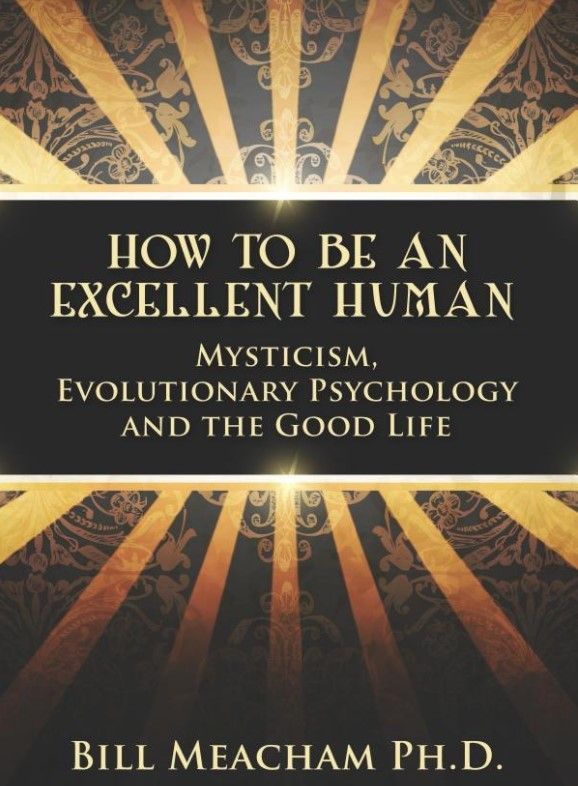What's In A Name
A rose by any other name would smell as sweet, says the bard, but a concept wouldn’t. Take the term “consciousness.” Usually taken to mean the capacity to be aware of one’s surroundings, it can mean anything from the mere state of being unsedated to the ground of all being. If we want to avoid ambiguity and promote mutual understanding, we need to get clear on what we mean by the term. In this essay I focus on the most grandiose of its meanings, the ground of all being.
Deepak Chopra, a prominent New Age author and speaker, says
“consciousness creates reality”(1)
and
Consciousness … is not just a human attribute. Existing outside space and time, it was “there” “before” those two words had any meaning. In essence, space and time are conceptual artifacts that sprang from primordial consciousness.(2)
Without addressing the metaphysical claim, it should be clear at least that the term “consciousness” in this context is misleading. Its meaning is certainly far from just being able to detect your surroundings well enough to navigate around. As this primordial consciousness is alleged to precede any distinction between being conscious and what one is conscious of, it would be less confusing to call it something else, perhaps “primordial being” or “primordial reality.”
But there are a number of other terms we could use as well. Here are three:
- Brahman
- Tao
- Zat
These terms – and there may be more; this list is illustrative only, not exhaustive – come from various mystical traditions. “Brahman” is from the Upanishads, ancient Indian philosophical texts, and it means supreme existence or absolute reality.(3) “Tao” is a Chinese word meaning the primordial essence or fundamental nature of the Universe.(4) “Zat” is a Sufi term meaning the unmanifested.(5)
Does that help? Is “unmanifested essence of absolute reality” any better than “primordial being” as a substitute for “consciousness”? What could these terms mean? To answer, we must consider what meaning is.
The great German logician Gottlob Frege distinguished two aspects of meaning, which he called reference (Bedeutung in German) and sense (Sinn). A term’s reference is what it refers to, denotes or points out. A term’s sense is the way it is presented. The Internet Encyclopedia of Philosophy explains it this way:
One of his primary examples … involves the expressions “the morning star” and “the evening star”. Both of these expressions refer to the planet Venus, yet they obviously denote Venus in virtue of different properties that it has. Thus, Frege claims that these two expressions have the same reference but different senses. The reference of an expression is the actual thing corresponding to it, in the case of “the morning star”, the reference is the planet Venus itself. The sense of an expression, however, is the “mode of presentation” or cognitive content associated with the expression in virtue of which the reference is picked out.(6)
The terms in question here – “primordial reality,” “Brahman,” “Tao,” “Zat” – all have the same reference; they all denote the same thing. (Except what they denote is not a thing. We’ll get to that shortly. But linguistically the terms all function the same way, as names.) Their senses are different, however.
To understand the senses we do have to address metaphysics. Let’s consider just one of the terms, “Zat,” with which perhaps you are not familiar. The Sufi mystic Hazrat Inayat Khan says the following:
According to Sufi tenets the two aspects of the supreme Being are termed Zat and Sifat, the Knower and the Known. … Zat being only one in its existence, cannot be called by more than one name, which is Allah; and Sifat, being manifold in four different involutions, has numerous names….
Zat projects Sifat from its own self and absorbs it within itself. It is a rule of philosophy that the negative cannot lose its negativeness by projecting the positive from itself…. The positive has no independent existence, yet it is real because projected from the real, and it may not be regarded as an illusion. Human ignorance persists in considering Zat to be separate from Sifat, and Sifat independent of Zat.(7)
Within manifest reality, the reality we all live in, there are two poles: the knower and the known, that which is conscious and the objects of which it is conscious. Zat, the knower, is called negative because in any moment of experience it is absent from Sifat, all the objects of experience. The experiencer is not any of what is experienced; it is not found in experience; it is, as it were, a nothingness. (That is the Sufi’s assertion. You will need to examine your own experience to determine whether or in what way it is true.)
But recall that “Zat” also denotes the unmanifest. According to this cosmology, Sifat, all that is manifest, emanates from the unmanifest, Zat, at the beginning of time and will return to the unmanifest at the end. We are in the midst of a grand cosmic cycle, rather like that posited by the Big Bang theory of the origin of the universe. That theory says that about 15 billion years ago the universe started expanding from an unimaginably small point and that at some point in the future it will collapse back into a single point. Unlike the Zat-Sifat theory, which makes no measurable predictions, the Big Bang theory does predict certain observations; and those observations have been confirmed.(8) Until further evidence is found it is at least reasonable to suppose that the universe oscillates between being fully collapsed and fully expanded, and that we find ourselves at some temporal point within that cycle.
The Big Bang theory makes no reference, however, to a conscious observer; it describes only the physical world that is observed. The Zaf-Sifat theory, on the other hand, explicitly includes an observer, Zat as knower. Not stated in the brief excerpt given above, but included in the world view of the Sufi, is the assertion that the point of view which is conscious within each one of us, which we may refer to as a knower, is in some way the same as a universal or cosmic knower. Ralph Waldo Emerson called it the “Over-Soul.”(9) Zat as knower of Sifat is not just a feature of the individual but part of the fundamental structure of reality.
So what is the relationship between Zat as unmanifest and Zat as knower? That Zat as knower is a feature of the world we live in leads thinkers such as Chopra to believe that the term “consciousness” is appropriate for it. Because “consciousness” has many meanings, I think it more suitable to avoid the term and say something like “transcendental Self” or “transcendental Ego” or “Over-Soul” instead. But even those terms would not apply to a state in which nothing is manifest.
Physicist Stephen Hawking says we can say nothing about the physical characteristics of the unmanifest state, the state “before” the big bang:
Since events before the Big Bang have no observational consequences, one may as well cut them out of the theory, and say that time began at the Big Bang. Events before the Big Bang, are simply not defined, because there’s no way one could measure what happened at them.(10)
Similarly, the Zat-Sifat theory says that we can say nothing about how it would be to experience the unmanifest state. It would be a state of complete unity. There would be no separation between knower and known, between the conscious subject and the object of which the subject is conscious. It is impossible to imagine such a state, because we can imagine only various objects presented to us, not the absence of all objects. The closest we can come is to imagine sheer undifferentiated quality, sameness, suchness, it-is-what-it-is-ness, what C.S. Peirce called Firstness.(11) The unmanifest state would be neither consciousness nor an object of consciousness, neither witness nor what is witnessed, neither mind nor matter.
As such, it would be completely useless. Speculation about it is what the Buddha called a question that does not edify.(12) Regardless of what the unmanifest state might or might not be, what matters is the state of manifestation that we live in here and now.
What’s not useless are the senses, as Frege calls them, of the various terms taken as referring to the Over-Soul that regards manifest reality. To think of Zat as the knower of the entirety of Sifat – or of Brahman as identical with self or soul, or of Tao as animating the flow of nature, which I have not discussed – suggests something like a personality, an agent. Agency, say the mystics, lies at the core of the reality we live in. And it is not at all useless to try to find out something about that agent and even to enter into a deliberate relationship with it.
The agent at the core of reality has been called by many names. We may call it “Allah,” as the Sufi suggests, or “Krishna” or “Quan Yin” or “Ahura Mazda” or “Wakan Tanka” or “Y-H-V-H” or “God” or “the Higher Self” or many other names. Just don’t call it “consciousness.”
—
Notes
(1) Chopra, Quantum Healing, Preface.
(2) Roff, “Interview with Deepak Chopra.”
(3) Encyclopædia Britannica Online, “Brahman”.
(4) Wikipedia, “Tao”.
(5) Khan, The Sufi Message, Vol. 5, p. 25.
(6) Klement, “Gottlob Frege.”
(7) Khan, The Sufi Message, Vol. 5, p. 14.
(8) Hawking, “The Beginning of Time.”
(9) Emerson, “The Over-Soul.”
(10) Hawking, “The Beginning of Time.”
(11) Wikipedia, “Categories (Peirce).”
(12) Buddhist Writings, Majjhima-Nikaya, Sutta 63.
References
Buddhist Writings, Translated and Annotated by Henry Clarke Warren. Vol. XLV, Part 3. The Harvard Classics. New York: P.F. Collier & Son, 1909–14; Bartleby.com, 2001. Online publication http://www.bartleby.com/45/3/201.html as of 15 November 2012.
Chopra, Deepak. Quantum Healing: Exploring the Frontiers of Mind Body Medicine. New York: Random House, 2009 [1989].
Emerson, Ralph Waldo. “Essays, First Series [1841]: The Over-Soul.” Online publication http://www.emersoncentral.com/oversoul.htm as of 9 May 2016.
Encyclopædia Britannica Online, s. v. “brahman”. Online publication http://www.britannica.com/topic/brahman-Hindu-concept as of 8 May 2016.
Hawking, S.W. “The Beginning of Time.” Online publication http://www.hawking.org.uk/the-beginning-of-time.html as of 9 May 2016.
Khan, Inayat. The Sufi Message of Hazrat Inayat Khan, Vol. 5: A Sufi Message of Spiritual Liberty. London: Barrie and Rockliff, 1962 (1973). Online publication http://wahiduddin.net/mv2/V/V_1.htm as of 8 May 2016.
Klement, Kevin C. “Gottlob Frege.” Internet Encyclopedia of Philosophy. Online publication http://www.iep.utm.edu/frege/ as of 8 May 2016.
Roff, Chelsea. “Interview with Deepak Chopra on Consciousness, God, & the Nature of Belief.” Online publication http://www.beliefnet.com/columnists/intentchopra/2012/09/interview-with-deepak-chopra-on-consciousness-god-the-nature-of-belief.html as of 5 May 2016.
Wikipedia. “Categories (Peirce).” Online publication https://en.wikipedia.org/wiki/Categories_%28Peirce%29 as of 9 May 2016.
Wikipedia. “Tao.” Online publication https://en.wikipedia.org/wiki/Tao as of 8 May 2016.

How To Be An Excellent Human
Mysticism, Evolutionary Psychology and the Good Life by Bill Beacham, Ph.D.

